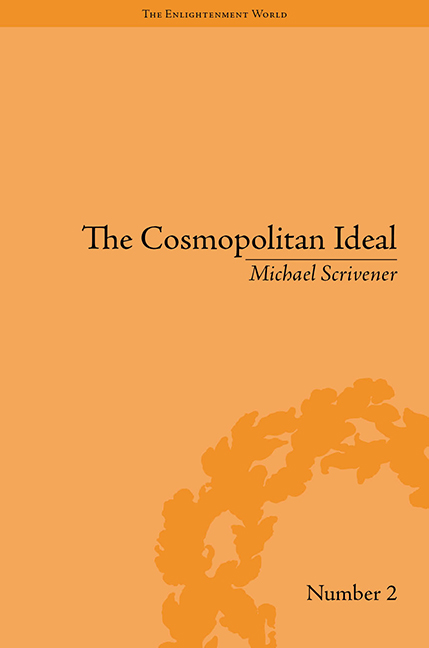1 - Cosmopolitanism Then and Now
Summary
‘… the highest purpose of nature, a universal cosmopolitan existence, will at last be realised as the matrix within which all the original capacities of the human race may develop’.
Immanuel Kant (1784)‘The contemporary world situation can be understood at best as a transitional stage between international and cosmopolitan law. But many indications seem to point instead to a regression to nationalism’.
Jürgen Habermas (1996)Cosmopolitan Narratives
The competing accounts of eighteenth-century cosmopolitanism dispute in effect the meaning of the Enlightenment, and one's understanding of the Enlightenment leads sooner or later to an account of modernity and – ever since Lyotard – postmodernity as well. Referring to the significance for the French of the Enlightenment and the Revolution, Darrin McMahon observes that they ‘continue to serve as benchmarks by which men and women gauge their allegiances and identity in the present’. Studies of the Enlightenment are necessarily entangled in the pressures and commitments of the moment in which they are written. Ernst Cassirer's and Peter Gay's descriptions of the Enlightenment, as astute as they are, reflect their understanding of how Enlightenment counters political irrationalism, most especially a Nazism that threatened them both as German Jews. Isaiah Berlin's very different story about the Enlightenment and Counter-Enlightenment (a historical category he invented) was shaped by his perception of totalitarianism, not simply Nazism – so that the Counter-Enlightenment offers a durable set of ideas to oppose the coercion and violence of modernity, something neither Cassirer nor Gay countenanced. The influential Dialectic of Enlightenment (1947) by Theodor Adorno and Max Horkheimer, written in exile during the darkest days of World War Two, finds the Enlightenment complicit with domination and makes positive use of a Counter-Enlightenment figure like Nietzsche, whom the Nazis also found congenial. The Frankfurt School philosophers, however, never became committed Nietzscheans like the poststructuralists. In the words of Jürgen Habermas, for Adorno ‘there is no cure for the wounds of Enlightenment other than the radicalized Enlightenment itself’.
- Type
- Chapter
- Information
- Publisher: Pickering & ChattoFirst published in: 2014



